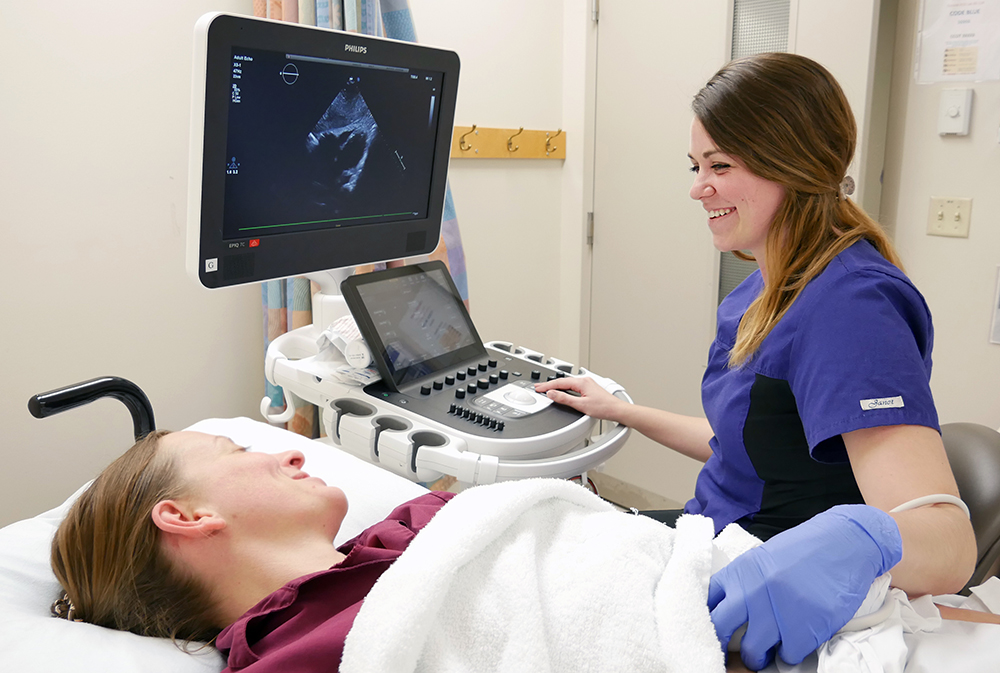
Your IMPACT
Many of us consider our heart to be the place where we feel things most deeply. Often, it’s not until there’s a health problem that we think about how this powerful organ inside our chest serves as the engine to keep us alive.
Cardiology is a field of medicine where advances in technology have led to dramatic transformations in care. Thanks to technology supported by generous donors, the need for open-heart surgeries with long recoveries has been reduced significantly and diagnostic tools, such as echocardiograms, are much better at providing clearer images of the heart.
An echocardiogram uses sound waves – ultrasound – to produce images of the heart. These common tests check for problems with the valves, muscles and chambers of the heart, and also help determine if heart problems are the cause of symptoms such as shortness of breath or chest pain.
At LHSC, there are more than 24,000 adult echocardiograms performed each year in busy labs that run seven days a week. Given their essential role in early diagnosis, updating the equipment in the echocardiogram “echo” laboratories was necessary for the patients in our region to receive the best assessment for a wide range of cardiac symptoms. Our generous community responded to that need. Donors funded this critical equipment that keeps the program at the forefront of cardiac care.
The new equipment allows the hospital to provide expanded services like a contrast echo, which involves the use of micro bubbles that interact with the ultrasound to produce a more accurate image of the heart – a procedure that’s especially critical for patients whose anatomy makes a traditional ultrasound more difficult.
“This equipment provides new information from readings that we couldn’t access before,” says Dr. David McCarty, a Cardiologist at LHSC who specializes in echocardiograms. “The quality of the image allows us to provide faster and increasingly precise diagnosis while also optimizing our minimally invasive procedures.”
Thanks to you, patients in need of cardiac care – whether they’re experiencing first-time symptoms or long-standing heart issues – will be assessed early with the most accurate tools for diagnosis, ultimately leading to better outcomes.
